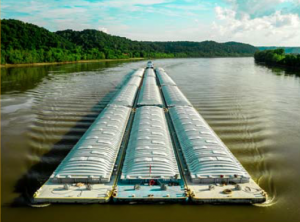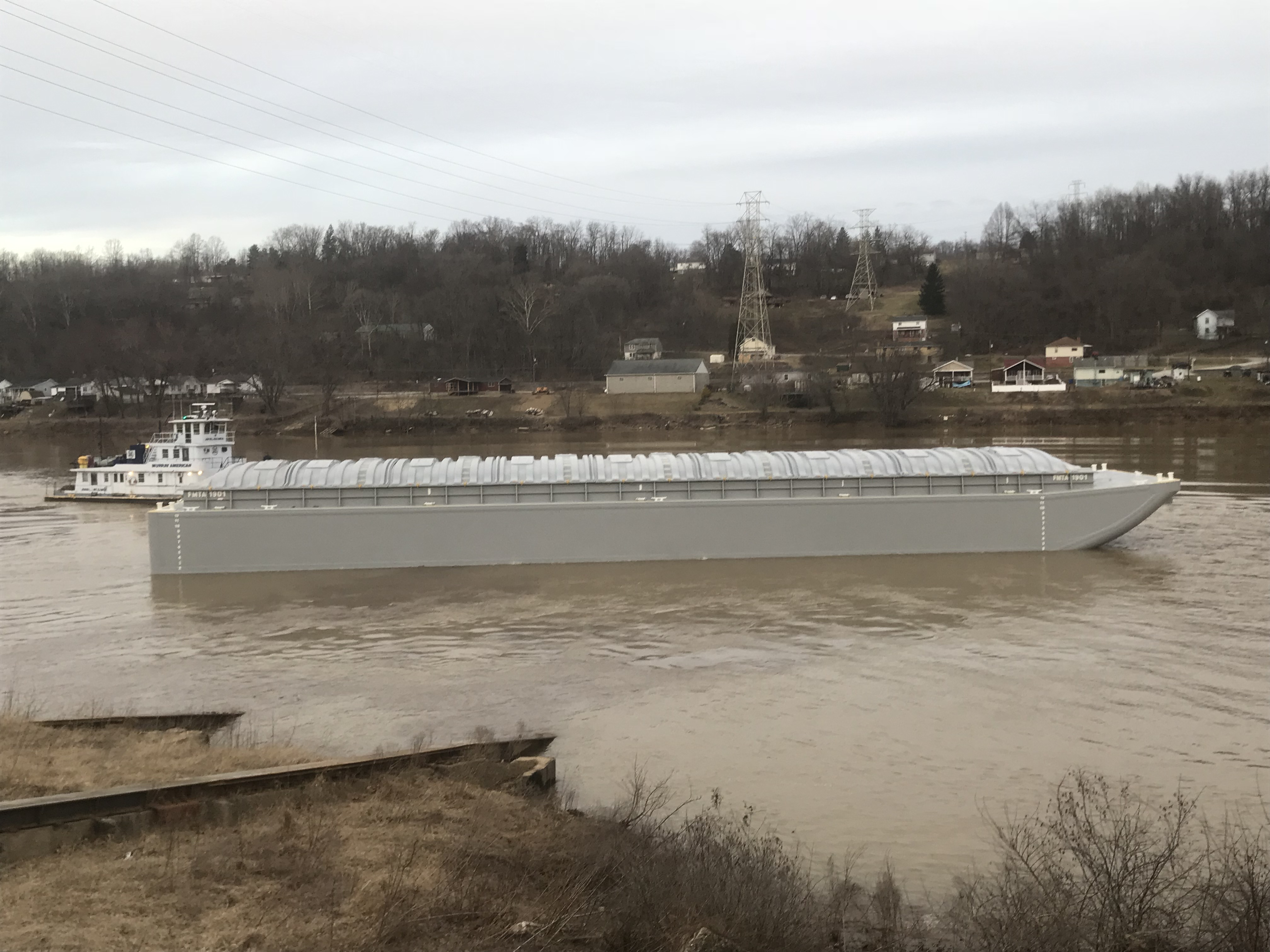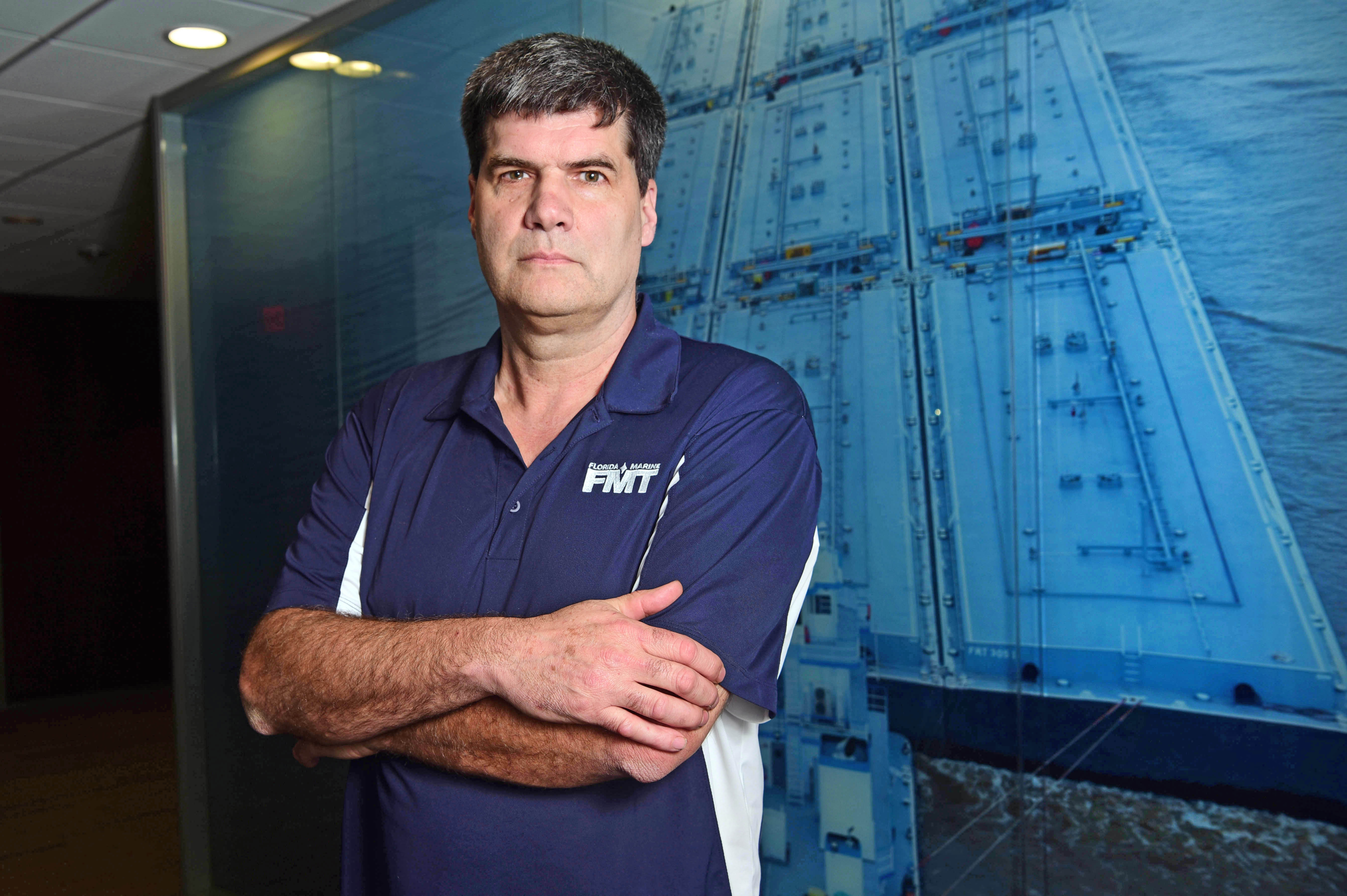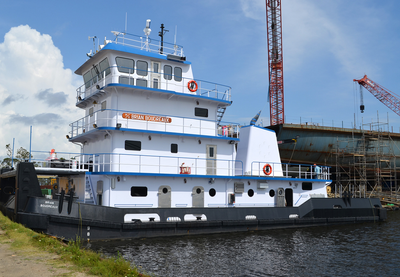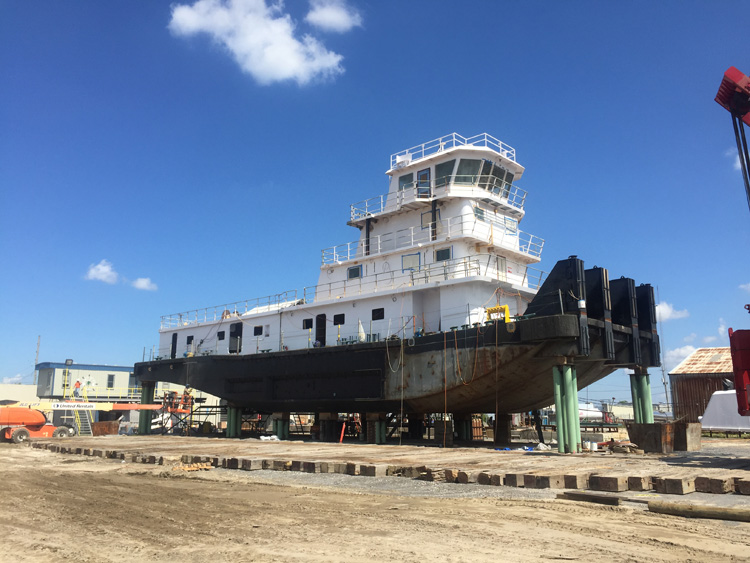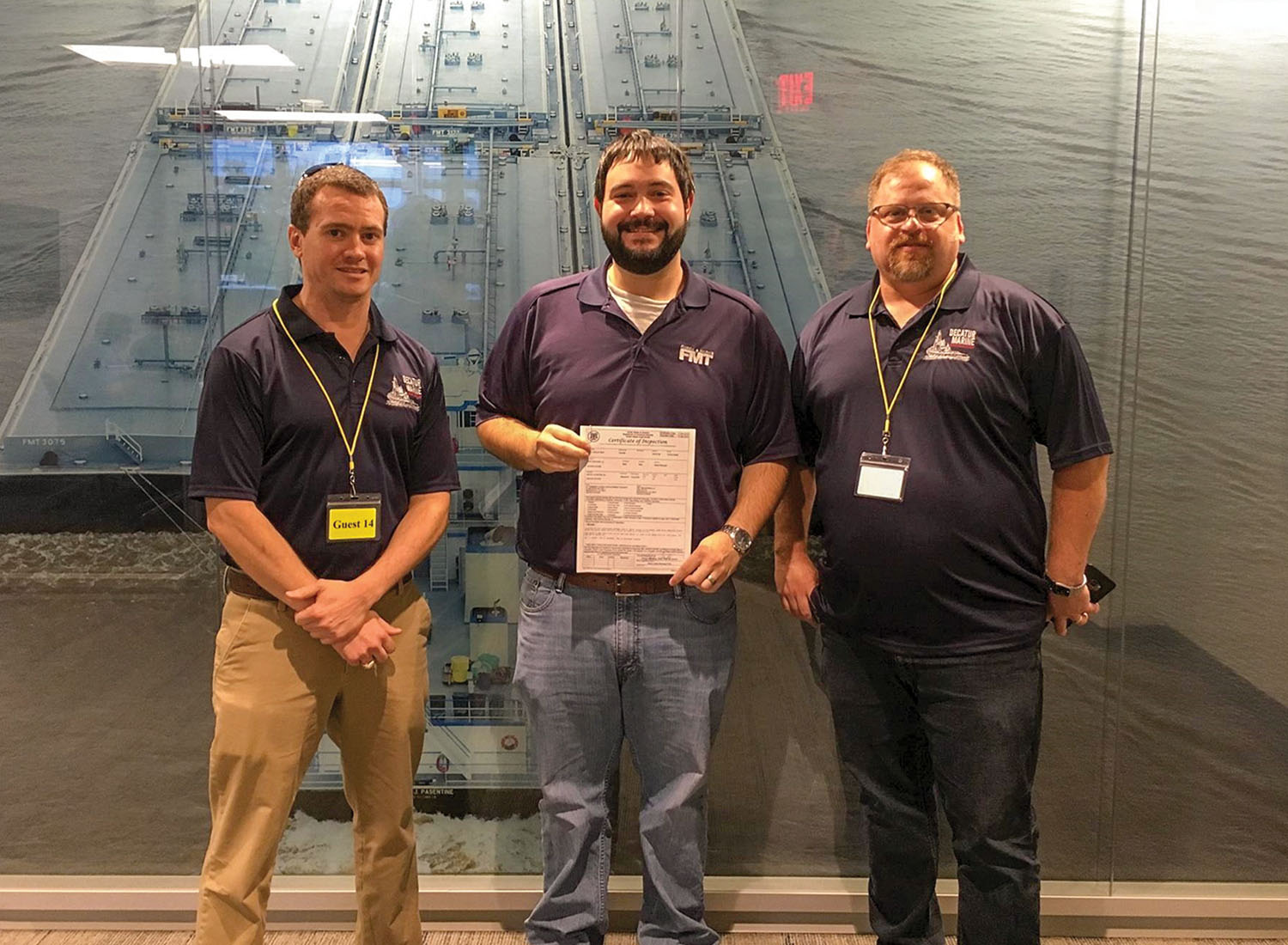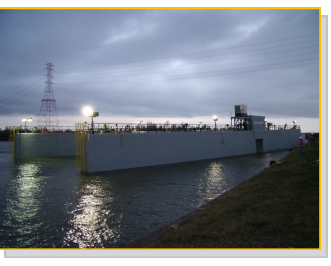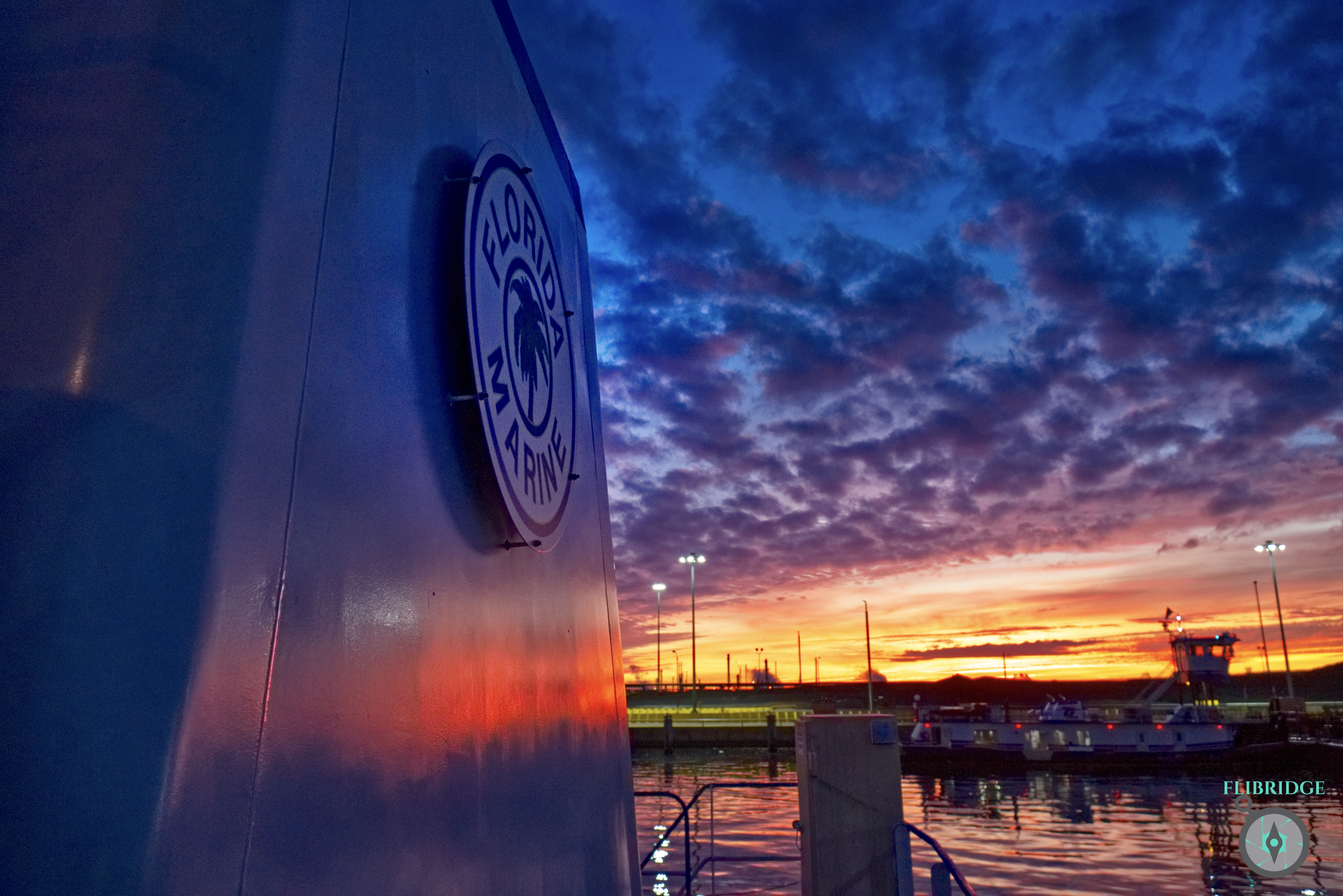Florida Marine Company News
Florida Marine would like to share our current events. At Florida Marine we are very proud of our commitment to safety, environmental soundness and efficiency. Excellence is achieved in each area through our dedicated employees!
The Transporter Quarterly Newsletter Q3-18
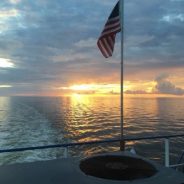 Florida Marine, LLC and the FMT Shipyard & Repair were both recently
Florida Marine, LLC and the FMT Shipyard & Repair were both recently
honored by the Louisiana Workers’ Compensation Corporation and presented with the LWCC Safest 70 Award. Out of 22,000 members, only 70 are recognized, making it a true honor for Florida Marine to be the recipient of two of these awards. This
marks the 8th time Florida Marine has received the award, and the 3rd for the FMT Shipyard.
The Transporter Quarterly Newsletter Q1-18
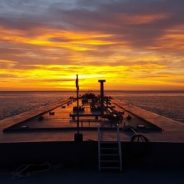 Happy New Year! As we enter into “2018” we are all filled with
Happy New Year! As we enter into “2018” we are all filled with
excitement of the beginning of a new year and new opportunities. As we reflect on all the joyous births and heart breaking losses of some of our FMT family members, we bring our thoughts to the importance of family. FMT has always prided itself
as a work family and we care very deeply about each and every one of you. Thank you for your dedication and strong work ethic, it truly shows every day in your job performance. Let us all pray for God’s Blessings in this New Year. Read more
The Transporter Quarterly Newsletter Q4
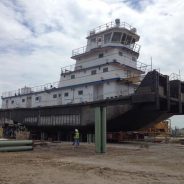 Chip Stiebing, Shipyard Manager, stated “FMT reached yet another big milestone on August 24,
Chip Stiebing, Shipyard Manager, stated “FMT reached yet another big milestone on August 24,
2017. Launching our first new boat is a big accomplishment for our shipyard. It was amazing to see everyone involved pull together making our first launch a success.”
The designer of the 120’ Hull vessel, Jeff Brumfield, Sr., Manager Boat Construction & Engineering, brings over 38 years of experience to the team. Florida Marine is the only company in the industry with this type of vessel.
FMT made some improvements to the proved design of the boats already in our fleet and decided that it was time to start building these vessels at our own shipyard. “In-house building is much better as we have made many strides in the process,
including quality control and expenditure of the build out. We will keep improving in our capability, quality and efficiency,” said Jeff. Read more
The Transporter Quarterly Newsletter
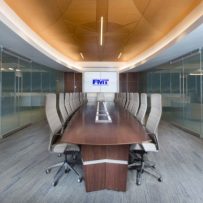 Hail, hail, the gang’s all here… FMT outgrew its two-story facility in 2014 and
Hail, hail, the gang’s all here… FMT outgrew its two-story facility in 2014 and
began its expansion in Octo-ber 2015, to bring the FMT Family under one roof.
Designed by Greenleaf Law-son Architects and constructed by KENT Design Build, the project consisted of building a new 25,000 sq/ft two-story facility, connecting the two buildings with an atrium lobby and reskinning the existing facility.
This space includes conference rooms, collaborative spaces and over 40 private offices.
With efficiency and sustainability as key initiatives, FMT utilized technological advancements in efficiency. Incorporated in this modern structure is a 28,500-sq/ft geothermal system, including 60 closed loop wells, 34 water source heat pumps,
ERVS and a cooling tower, low E coated windows with additional carbon ceramic tint, day-lighting interior glass and 100% LED lighting, resulting in 65% reduction in energy costs. Looking to the future, FMT used DIRTT modular wall systems to
provide flexibility to reorient wall surfaces as the need arises.
Integral to the development of FMT is the care of its employees. A key component to this expansion called for better employee accommodations and the ability to prepare for an expanded workforce. Creating a campus style environment, including a
courtyard along with multiple breakout rooms within the new structure, provides FMT employees with the appropriate atmosphere for relentless productivity.
Dennis Pasentine Honored by Propeller Club
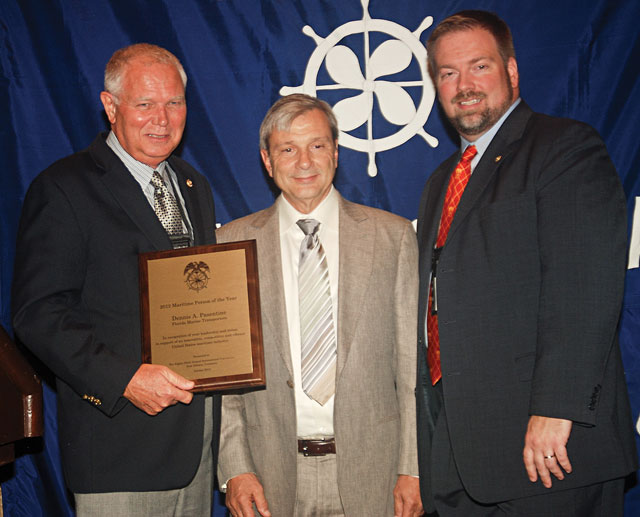 Wade Wetherington, president of the International Propeller Club of the United
Wade Wetherington, president of the International Propeller Club of the United
States, left, and Andrew Riester, international vice president, right, present Man of the Year award to Dennis Pasentine, center.
Dennis A. Pasentine, owner and chairman of the board of Florida Marine Transporters, received the prestigious Man of the Year Award from the Propeller Club during the club’s International Convention, held in New Orleans October 3–5.
Pasentine’s hands-on leadership stresses family values and a “relentless pursuit of excellence,” striving to become the best inland boat and barge operator. Loyalty, safety, reliability, customer service and a charitable culture are cornerstone
values of his business.
After graduating from high school in 1974, Pasentine worked for Exxon as a tankerman and later licensed captain. He left in 1976 to work for Gulf Intracoastal Marine, where he served as a field representative and tankerman until 1979.
The company recognized his administrative talents and brought him into the office to develop proper loading and discharge procedures for tank barges and training new tankermen. He also served as captain, port captain, and operations manager,
developing safety, operating and personnel policies as well as hiring and training new employees. He left in 1993 when the company was sold to outside interests.
Pasentine went to work for Florida Marine Transporters, Mandeville, La., where he oversaw the development of safety, operations and sales policies. He would serve as operations manager from 1994 to 1996, sales manager from 1996 to 1997, and
chief operating officer from 1997 to 1998, before acquiring the company as owner in 1998.
Since 1998, no other inland tank barge company has built more new barges or towboats. In the process, he also established FMT Shipyard & Repair along the Harvey Canal on the Westbank of New Orleans.
Pasentine’s philosophy is that each employee is vital to FMT’s success, and his loyalty to his employees has resulted in most captains having more than 10 years of service with him, some dating to his days at Gulf Intracoastal Marine.
A big believer in training, FMT begins employees with a 14-day orientation program, in which they learn about the company’s safety culture and gain basic skills needed to work on company towing vessels. With additional service, employees attend
company training classes to gain their tankerman license, and can move on in company training to master of towing certification.
In the aftermath of Hurricane Katrina, when Delgado Community College could find no other classroom space for its Industrial, Marine and Fire School, Pasentine made room at his training center. Together with other organizations, FMT partnered
with Delgado to establish a state-of-the-art towboat simulator to train wheelmen.
FMT’s ongoing commitment to the AWO Responsible Carrier Program and Shell Chemical’s “Hearts and Minds” Behavioral Based HSE Program contributed to a significant reduction in overall number of injuries, illnesses and vessel incidents.
Feeling he has been blessed with some of the industry’s best employees, Pasentine is quick to give back to the community. In the days after Hurricane Katrina, he established Friends of the Frontline foundation, a non-profit organization that
raised nearly $1 million for families of police and firemen who lost homes due to flooding.
In some of his other philanthropic efforts, he has supported the Drew Brees Dream Foundation, Jonathan Vilma Foundation, St. Tammany Arts Foundation, Special Olympics LA, Fore Kids Foundation, Juvenile Diabetes Research Foundation, MHS Football
Boosters, MSC Boy Premier, FS Cheerleading, Saint Paul’s School, St. Tammany West Chamber of Commerce, Lake Pontchartrain Foundation, American Cancer Society, Smile Train, Church of the King, SBBA, Ponce De Leon High, Cub Scouts and Children’s
Foundation, among others.
The FMT fleet is valued at $1.5 billion and includes 275 tank barges for Class D cargoes, and more than 270 tank barges rated Subchapter O for chemicals; 59 canal-class towboats ranging in horsepower from 1,700 to 2,800; 16 river-class towboats ranging in horsepower from 3,300 to 6,000; 13 pressurized LNG barges; 50 heavy-duty hopper barges for aggregate cargoes; three spud barges; three drydocks rated from 1,000 tons to 3,000 tons; 10 service barges for oil pollution cleanup; and a bow steering unit featuring state-of-the-art technology.
FMT employs nearly 800 employees dedicated to transporting customers’ resources with the highest level of safety, efficiency and environmental stewardship.
Taking Safety Home
 As tow boaters, your primary focus is safety while you are on the boat. As a maritime company, our primary focus is safety day in and day out. But, what about when we go home? Is our primary focus safety? Data suggests that it isn’t for millions of Americans. The National Safety Council reported that in 2009 there were 30.5 million injuries due to home and community-related incidents – 1 in every 10 people were injured at home. Their data also shows an increase annually of people injured at home. At Florida Marine we want our employees to be safe at work and at home – we don’t want our employees to become one of these statistics. Therefore we are asking you to take safety home; i.e., take home the safety lessons you learn and teach on the boat to your family.
As tow boaters, your primary focus is safety while you are on the boat. As a maritime company, our primary focus is safety day in and day out. But, what about when we go home? Is our primary focus safety? Data suggests that it isn’t for millions of Americans. The National Safety Council reported that in 2009 there were 30.5 million injuries due to home and community-related incidents – 1 in every 10 people were injured at home. Their data also shows an increase annually of people injured at home. At Florida Marine we want our employees to be safe at work and at home – we don’t want our employees to become one of these statistics. Therefore we are asking you to take safety home; i.e., take home the safety lessons you learn and teach on the boat to your family.
To go a step further, and to help everyone recognize areas where we should be safe at home, please share the checklist below with your family. The checklist comes from
- Sound the Alarm: Install smoke detectors on every floor of your home and carbon monoxide detectors near sleeping areas. If already installed, test them! Tip: Replace the batteries every daylight-saving time change.
- Avoid Overload: Check for overloaded extension cords – usage should not exceed the recommended wattage.
- Don’t Get Tippy: If young children are in the home, bookshelves and other furniture should be firmly secured with wall brackets to prevent tipping.
- Paint Safe: Check walls for loose paint. If re-painting, do so in a well-ventilated area and consider VOC-free paint.
- Childproof, Childproof, Childproof: Check your local library or look online for complete lists of childproofing suggestions. Areas of particular danger include outlets, appliances, electronics, stairs and windows.
- Cover Outlets: Cover all unused outlets to prevent children from sticking a finger in the socket.
- Watch Cord Placement: Extension cords should not be placed under rugs or heavy furniture, tacked up or coiled while in use.
- Get Grounded: All major appliances should be grounded. Be sure to check your ground fault circuit interrupters regularly.
- Plan Your Escape: Practice a fire escape plan with your family where you identify two exits for every room and what to do with young children.
- Give Your Air Heater Some Space: All air heaters should be placed at least three feet from beds, curtains or anything flammable.
- Keep Extinguishers Handy: Place all-purpose fire extinguishers in key locations in your home – the kitchen, bedroom and basement. Be sure to check expiration dates regularly and know how to use them safely.
- Create a Safe Exit: In addition to alarms and extinguishers, consider an escape ladder if your home has two floors. Keep emergency numbers and contacts readily available by the phone.
- Unplug Appliances: Unplug appliances and electronics when not in use and store them out of reach.
- Go New in the Nursery: Check that all painted cribs, bassinettes and high chairs were made after 1978 to avoid potential lead paint poisoning.
- Cool Your Jets: Set your water heater below 120 degrees Fahrenheit to avoid potential burns and to save energy.
- Put Away Medications: Take medications and medical supplies out of your purse, pockets and drawers, and put them in a cabinet with a child safety lock.
- Look for UL: The UL Mark appears on products that have been tested, verified and inspected for safety. Make sure to look for it to keep your holidays safe and bright.
Join us in being safe at home!
Alive and Well on the M/V Wes Sellars!
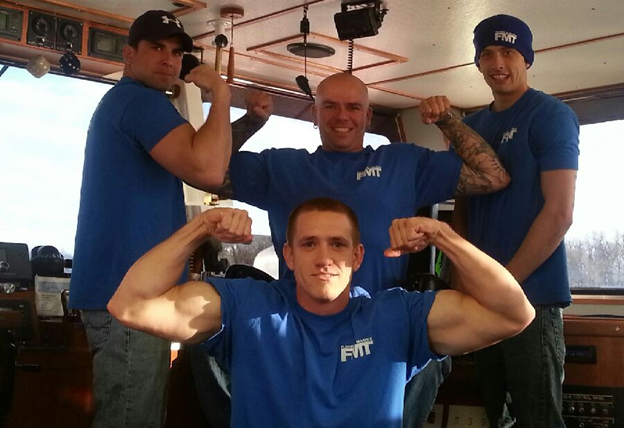 We would like to recognize Captain Potter and his crew for taking charge of their health and wellness, and changing their lives. Throughout their transformation, the crew increased their stamina, strength, flexibility, happiness and self-esteem along with reducing their BMI – they lost weight and gained muscle mass.
We would like to recognize Captain Potter and his crew for taking charge of their health and wellness, and changing their lives. Throughout their transformation, the crew increased their stamina, strength, flexibility, happiness and self-esteem along with reducing their BMI – they lost weight and gained muscle mass.
How did they decide to get started? The crew came together, held a meeting, and decided it was time to get healthy. They decided to take on this challenge together – to do this as a team.
What motivated the crew? Jason was motivated by wanting to be more active for his girls playing soccer and running around the house; Stephen wanted to go back to a healthy diet and exercise lifestyle; AJ was tired of being the skinny kid and wanted to support his fellow crew members; Chad was motivated by wanting to make a life change overall and didn’t want to be the “heaviest” crew member; and Andrew was motivated by the crews’ results and wanted a new nickname (not to be called “Noodle” anymore).
Everyone has their reasons for becoming motivated initially, but staying motivated is tough. The crew’s ongoing motivation occurred automatically as the results started building. The stronger and healthier everyone became, the more they wanted to be stronger and healthier. The crew’s motivation was further encouraged by seeing constant muscle gain and friends’ faces when they went home.
What were their goals? Along their journey, the crew members each set individual goals. Jason’s first goal was to get from 296 to 240. Now he has new goals such as gaining strength and reaching 220. Stephen’s goal was to gain 20 pounds of muscle and lose 5% body fat. AJ’s goal was to have 18” arms and gain muscle weight. Chad’s goal was to get from 250 to 220. Andrew’s goal was to go from 135 to 160. Everyone has either met their goals, or is very close to achieving
their goals.
How’d they do it? To achieve their goals, the crew changed their eating habits, closely monitored their carbohydrate and calorie intake, and made more conscience decisions on what they ate. They also began working out 6 days a week. Crucial to their success was the Captain’s positive outlook and commitment to diet and exercise.
What does the crew recommend to their fellow tow boaters? The crew recommends getting healthy as a crew – to push each other. They also recommend having fun with it, but making it a way of life to live healthy full time. They advise setting realistic goals as steps toward reaching you reach your ultimate goal. They recommend educating yourself on proper diet and exercise – they say that the more you know the easier it is to obtain your goals, and also getting rid of as much junk food (temptations). The crew also recommends never giving up on your goals even if you have a setback. And they remind us that “living healthy and meeting your fitness goals is not a 6 week program – it’s a way of life”
Join the M/V Wes Sellars and get healthy!.
Thank You
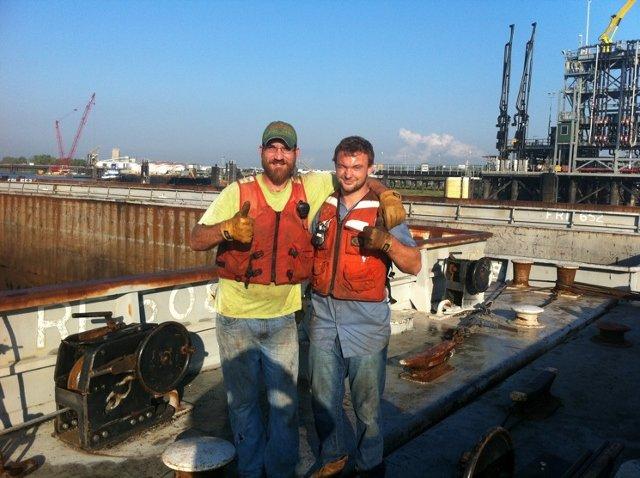 Florida Marine would like to thank its dedicated shore and vessel
Florida Marine would like to thank its dedicated shore and vessel
employees. It is only through the hard work and dedication of our employees that our mission and vision are accomplished. Florida Marine is proud of all employees – from those who have been with Florida Marine from the beginning to those who have just become part of our family.
Florida Marine Employees in the beginning years…
Chris Pike, Capt. Thomas Fleming, James “Tony” Lippman, Capt. Walter “Doug” Nunley, Capt. Kirby Dupuis, Joseph Little, Thomas Callahan, Jerry Jones, Capt. William “Jim” Berard, Capt. Joseph “Joe” Trosclair Jr, Harvey Sbisa III, Capt. Michael Bufalo, Capt. John “Glen” Leblanc, Johnny Burkett, Capt. Dale Artigue, Kelly Sellars, AB York
Employees with 10-15 years of dedication…
Marshall Barnes, Dennis J Pasentine, Ralph Vineyard, Capt. Melvin Serrette, Lora Dismuke, Louis Develle, Capt. Terrell “TC” Corel, Capt. Matthew “Smiley” Coen, Capt. Ricky Burkett, Janice Tyson, Capt. William “Butch” Farmer, Capt. Albert Pearson Jr., Keith Gelvin, Neil Dupuy, Capt. John Sumrall, Capt. Brent Michel, Capt. Jody Lagrange, Cullen Brumfield Jr, Capt. Stephen Mathieu, Capt. Jamie Verdin, Capt. Billy Burkett, Brian O’Daniels, Judy Pasentine, Capt. Jeffrey Soudelier, Capt. Wilson Baham, Capt. Ronald Jones, Bryan Allemand, Rusty Zeller, William Seymour, Howard Blank, Capt. Alvis Kavanaugh, Capt. Edward Ehret, Capt. Steven Johnson, Jerry King, Capt. Terry “Joe” Kent, Capt. Capt. Justin Simpson, Capt. Joshua Ard, Nicole York, Capt. Kenneth “Rex” Dunn, Capt. William Whitteker, Capt. Scott Box, Capt. Victor Dardar, Rhonda Lamulle, Mark Collins, Capt. Kevin Box, Leighton Powe, Capt. Moise Cheramine, Capt. Jack Foster, James Sikes, Capt.Robert Williams Sr., Cynthia Pasentine, Kristina Dutsch, Roy Huval, James Smith, Capt. Timmy Callais Sr., Capt. Jon Ruff, Capt. Harry Oalmann, Capt. Paul Billiot, Calvin Plaisance Jr., Capt. Timothy Griesheimer, D’Andre Forward, Angela Nunley, Samuel Gay, Capt. Jonathan Dunn, Capt. Calvin Morales Jr., James Tyner, Wes Sellars, Wilmer Jackson, RD Quebodeaux, Capt. Kaylor Jones, Capt. John “JW” Crawford, Capt. Jason Rogers
Florida Marine is proud to also have 237 employees with 5 to 10 years of dedication, 229 employees with 2 to 5 years of dedication, and 228 employees with less than 2 years of dedication.
The span of years and number of new employees demonstrates growth, commitment and alliance of employees to Florida Marine.
Florida Marine demonstrates dedication and recognition all its employees in several ways, including our safety rewards, training and development opportunities, promotion from within, and comprehensive benefits packages including a lucrative 401k program. Florida Marine employees host an annual crawfish boil to celebrate and thank all employees and families.
Employee Development
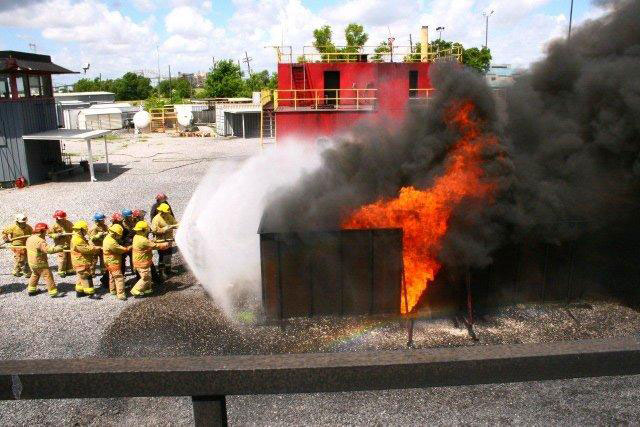 Florida Marine believes that developing its employees and promoting from within contributes to increases in achieving safety goals, retaining employees, improving morale, and building commitment. This is evident in our safety and environmental records, and our low turnover ratios for wheelman and shore side employees.Additionally, this has benefited our individual employees through career growth and personal recognition.
Florida Marine believes that developing its employees and promoting from within contributes to increases in achieving safety goals, retaining employees, improving morale, and building commitment. This is evident in our safety and environmental records, and our low turnover ratios for wheelman and shore side employees.Additionally, this has benefited our individual employees through career growth and personal recognition.
Through Florida Marine’s comprehensive steersman, tankerman and deckhand training programs, our towboat crews are able to develop their careers to their fullest potential. Currently we have 49 active steersman (16 turned loose this year, 5 being check rode) in training and 76 tankerman in training.
Florida Marine’s deckhand program consists of safety training, hands-on industry training, shipyard and fleet time. Florida Marine believes in and has promoted 33 members of its towboat crews from deck to wheelhouse over the past two years. Wheelhouse retention rate is 98%, and shore side is 96%.
Recently, two Florida Marine crews received recognition. Crews from the M/V Tim Burns and M/V Jason Belcher received a customer recognition letter; and Captain Jack Foster and his crew received an award from the from the USCG.
Kick-off to Wellness
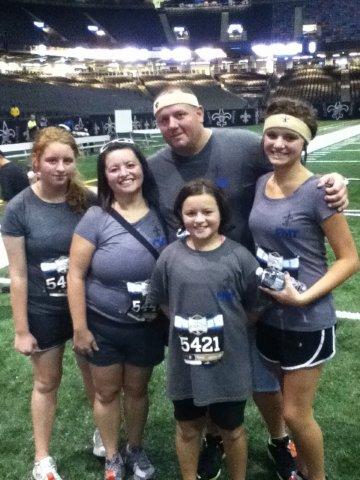 Florida Marine is proud to give back to the community and contribute to the wellness of its employees at the same time. This September, Florida Marine sponsored an event to kick-off development of its wellness program. Both a shore side and vessel side wellness program are currently being developed.
Florida Marine is proud to give back to the community and contribute to the wellness of its employees at the same time. This September, Florida Marine sponsored an event to kick-off development of its wellness program. Both a shore side and vessel side wellness program are currently being developed.
Florida Marine recognizes that employees perform their best when they are healthy and that optimal employee performance is necessary for the company to be a leader in its field. The mission of Florida Marine’s Workboat and Shore Side Wellness Programs aims to develop healthier lifestyle choices to reduce health risk factors, improve employee health, and maintain a productive and active workforce.
Florida Marine’s Wellness Program Goals
- Increase employee awareness on importance of physical activity and healthy eating habits.
- Create a work environment and culture that inherently supports healthier lifestyles of employees.
- Provide worksite ergonomic and safe lifting education to help reduce the risks of certain injuries.
- Reduce the number of incidents reported. Reduce the need for medical waivers.
- Reduce the number of claims filed

